Hamish McLachlan: How Olympic diving star Matt Mitcham found his feet
A difficult childhood and fear of coming out led to drugs, depression and self-harm for Olympian Matt Mitcham. He tells Hamish McLachlan how he came back from the brink.
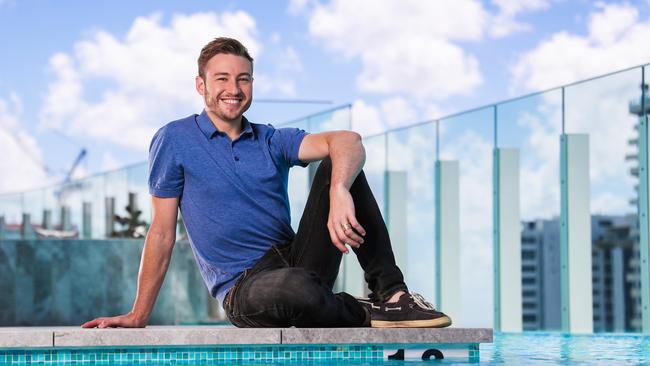
News
Don't miss out on the headlines from News. Followed categories will be added to My News.
Matt Mitcham produced the single highest scoring dive in Olympic history on the way to a gold medal. No one has bettered it since.
But Matt’s journey just to get to the 10m platform in Beijing was much more remarkable.
We spoke about a life riddled with anxiety, a constant sense of shame and guilt, his sexuality, depression, attempted suicide, drug and alcohol abuse and his ongoing anxiety.
HM: Matty, you grew up in a single parent household with a mum who suffers from Asperger’s syndrome. How would you describe your childhood?
MM: I remember being alone a lot. It was complicated looking back. She had chronic fatigue, a bit of depression. I remember getting in trouble if I made too much noise. I spent a lot of time sitting in front of the TV, just watching it quietly, or jumping on the trampoline outside, and reading – anything that wasn’t going to make any noise.
HM: Were you anxious?
MM: Yes, there was a lot of anxiety. I used to sit on the furthest edge of the passenger seat in the car, because I would do things to set mum off, and make her angry, so I was always anxious from that and fearful. By the time I was 13, I’d become a bit more self-assured, and start yelling back. Things would just escalate very, very quickly, and become very volatile and explosive. By the time I was 14, we decided that we couldn’t live in the same house.
HM: Where did you move to?
MM: I moved in with my grandma in Camp Hill.
HM: Did you feel a sense of love from your mum?
MM: Yes, there was. When I came out to her, the response was, “Duh – I’ve always known”. She was accepting, and I was very grateful for that. I was grateful for her driving me to trampoline training and getting the money together to send me to the world junior trampoline championships. There was gratitude for that, but the fear, the anger, the anxiety, the volatility – it leaves lasting scars.
HM: How do they manifest now?
MM: In all of my relationships really. The way I interact with everybody, particularly in my primary relationships. I have a lot of people pleasing tendencies, because I would rather sacrifice myself than upset somebody else. I’m a very fearful person, I’ve got a huge amount of anxiety, and a lot of that anxiety manifests in my relationships with others. Upsetting other people, letting other people down. It creates a lot of self-esteem issues as well. I go out of my way to make other people like me, rather than being confident enough in myself that I can maintain my boundaries and just be me, and not be so concerned by how being me is going to upset other people.
HM: That must be exhausting, tiring, and hard to fulfil.
MM: It is. If I felt I could just be myself, it wouldn’t cause as many problems, but that’s hard to do when you are anxious and lacking confidence.
HM: So essentially you are always having to be someone who isn’t authentically you?
MM: Essentially – through a lack of confidence in myself, I have always made the choice, and felt the need, to people please. And that causes friction when there’s conflict in who I am trying to please. Take my husband – if my people-pleasing is to the detriment of my husband, then that causes conflict and negativity in my life. I might overwork, or overcommit, essentially simply to please, and that’s to the detriment of other people. I’m okay when the detriment is to myself, but it’s when the detriment is to other people that it causes friction in my life.
HM: You said when you came out to your mum, she was really easy about it. How old were you?
MM: 14.
HM: Was it a relief?
MM: It was, absolutely. I had a group of friends that I was out with, and I told my grandma, who had a response that was very indicative of her generation. She was just worried for me. “I feel that your life would be easier if you were straight”. She wasn’t condemning or anything like that, just expressing her concern for me. Since getting married and being with Luke, and for years, even after the Olympics, she’s seen that sexuality doesn’t really have any part to play in how successful, or how happy I am. Being gay is not a hindrance to my success or happiness, so she’s very happy for me.
HM: One of my best mates took a long time to come out because they were concerned with the ramifications. I read you tried to ‘train’ yourself out of being gay with rubber bands, and other methodologies. Is that true?
MM: Yes, sadly. I thought aversion therapy might train myself out of being gay. I was young, only about eight or so. I’d snap a rubber band against my wrist every time I had a gay thought.
HM: Bloody sad having to try and be something else.
MM: Looking back, yeah, it was. I realised pretty quickly it wasn’t working. It took a while, but as a thirteen-year-old I realised that the shame wasn’t helpful. That opened me up a little bit, and it allowed me to open up with people, to be more of my authentic self with at least a small cluster of people who were accepting. That was the catalyst for becoming happier and feeling more accepting of myself. It was a very conscious decision that I needed to stop being ashamed of it, because it was not making me happy.
HM: I imagine that the first conversation you had when you came out was one of the more courageous conversations you’ve had. Who was that person, and was it a complicated chat?
MM: I think it was a close girlfriend at the time, and I just got a sense that it would all be OK. And it was, it was totally OK. It’s funny that I’m not entirely sure if she was my very first conversation around it, but I don’t even think that is the biggest hurdle.
HM: What’s is?
MM: Catastrophising. Catastrophising is universal. Almost all LGBTQIA+ people, we catastrophise. We tend to think of worst-case scenarios, which adds a lot of stress. It compounds the shame, and prevents people from doing it for a very long time. It can be really crippling and debilitating. Thinking you’re going to be abandoned by everybody, those people who are the most important to you are going to hate you, ostracise you and make you feel shit about yourself.

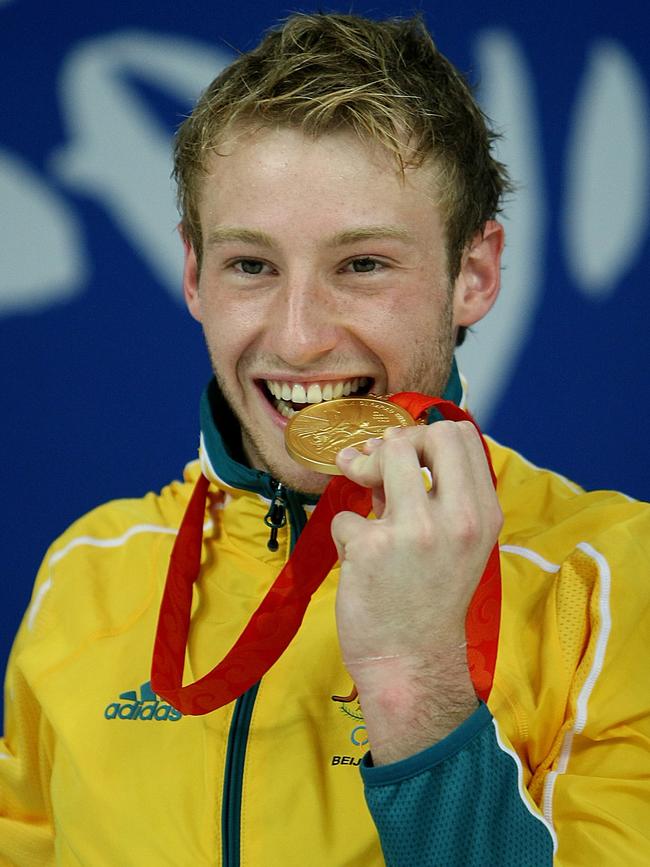
HM: That’s a big fear.
MM: Enormous. You feel you’re going to lose everyone, and everything that you hold near and dear. You fear life is going to end up so bad that there’ll be no point in living. You’ll just end up having to kill yourself. I think that’s pretty common – I wish it wasn’t, but I fear it is. Maybe it’s not as bad as I fear, but I think it is.
HM: I fear it is too. That’s why we’re having this chat. Sadly, still in 2021 there’ll be someone reading this article, that hasn’t come out that wants to, and may never. For all those reasons you’ve articulated so well.
MM: Shame is a really, really unhelpful thing. Guilt is a useful emotion, because guilt is what you feel after you’ve done something wrong. Shame is what you feel when you feel that you are something wrong. Shame is toxic, and unhelpful. Guilt is useful. Guilt is telling you you’ve done something wrong. I felt shame for who I was, and I would have continued to feel shame if I hadn’t found a group of people who I felt would accept me. Until you have all the evidence in the world to contradict your catastrophising, it’s not enough. Hopefully, for a lot of people hearing more stories like this, they feel “maybe I will be OK”.
HM: Who or what helped you most?
MM: Sometimes it’s as simple as a little mantra. One that helped me come out with my addiction many years ago was – “Those who mind, don’t matter, and those who matter, don’t mind”. If I am valuable enough to them, they wont care. They will support me. If I’m not valuable enough to them, or if they do have an issue with it, then they’re not a good person to have in my life. This is something that has changed a lot in my lifetime. I realised that I was gay in the '90s, so I grew up just after all of this HIV aids started. Justin Fashanu, who ended up committing suicide, was a footballer in the UK who came out. He had a really terrible time of it. I saw lots of evidence to suggest it wasn’t going to be okay.
HM: Fourteen – you started to feel depressed. Do you think that’s as a result of knowing you were gay, and not being able to come out? Or do you think you’re susceptible to depression anyway?
MM: I suspect I do have some sort of predisposition. Coupled with the hormonal goat rodeo that happens around that age and a sprinkling of unhelpful thought patterns that I never challenged, I really struggled. It would be naïve to think sexuality played no part, but luckily for me, I don’t think it was the biggest factor for me because I had thoroughly convinced myself that I didn’t want to get married or have kids so that I didn’t feel resentful about not being able to marry. Unfortunately for people who come from certain backgrounds, sexuality is a huge issue. Lots of people come from different families of origin, where it’s just not going to be acceptable. In Brazil, the majority are staunchly Catholic. I know so many people in Brazil who have ended up losing their families because they’re gay, because their religion doesn’t permit their families to love and accept them for who they are. This is a huge barrier, and a realistic one.
HM: Hard to imagine really?
MM: It happens a lot. Different people come from different backgrounds, and losing a family is a huge loss, and a huge barrier for people to come out. You’re not going to lose everybody. Sure, you might lose some people you care about, but what’s more important? Their feelings, or your own happiness?
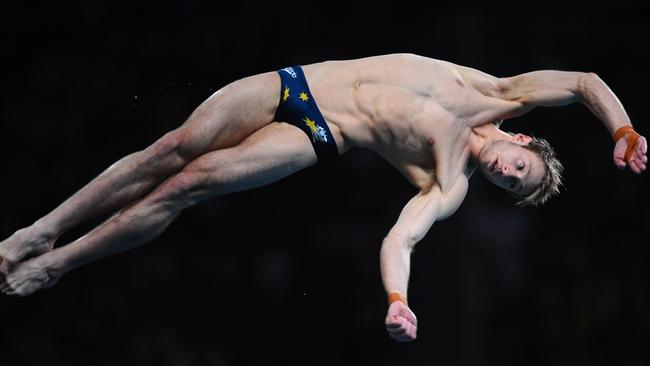
HM: How did you rationalise this?
MM: I thought, “Well, I won’t lose everybody, just some that don’t really matter’ So I took that approach. I came out publicly just before the Beijing Olympics, and I didn’t lose supporters, and I felt I gained the most enormous family from all around the world. That’s what the rainbow community does. We absorb people, and we become each other’s family. It’s a really beautiful thing.
HM: When did you realise, among the drugs and the alcohol and the depression, that you would be better off leaving that behind, and speaking openly about your life?
MM: Drugs and alcohol were escapism behaviours that I had used for a very, very long time. I started binge drinking at thirteen.
HM: Was that because of the tension with your mother, the lack of a fatherly figure, your sexuality or a combination of general unhappiness?
MM: I feel like I have a genetic predisposition to low moods, and low self-esteem. There’s the hormonal shit storm of your teenage years that adds to that and exacerbates it. There were some environmental factors. It all contributed. The desire for escapism, for turning my thoughts and feelings off, was very appealing to me.
HM: It’s a good way of describing it. “Turning my feelings off”.
MM: The escapism still runs strong with me these days. I’m five years clean and sober, but I still want to and feel the need to escape. The idea of drugs and alcohol is really not appealing to me, but when I get overwhelmed, the idea of going to bed and just hiding from the world, that’s just another way of switching my thoughts and feelings off. Just by going to sleep. I still have that tendency of wanting to escape, or of changing my thoughts, or feelings, and it’s something that has always run very strong in me. Drinking as much as you could, as quickly as you could, that was a quick and effective way of changing the way I felt. I did that every weekend for years.
HM: You were clubbing at fourteen, weren’t you?
MM: Yeah, that’s when I started getting in to places. The hard drugs didn’t start until I was 17.
HM: Was that because you wanted to escape further?
MM: That’s it. It made escaping easier for a little bit, but it got out of control very quickly. The harder the drugs, the more out of control it gets. They’re more powerful. They’re more effective at changing the way you feel, but the consequences are much more extreme.
HM: Was that the period where you thought of self-harming, and ending your life was a realistic option?
MM: I feel like the binge drinking took off because I was self-harming. I was cutting, I did try to kill myself a couple of times by asphyxiation, then with painkillers. The self-harming wasn’t to kill myself – it was an anger response. A release of anger. I stopped that when I went a bit too far and I had to get my grandma to take me to the hospital. The amount of sick and worry that I caused her was a wake up call for me. This was not an appropriate way for me to be dealing with my feelings. Rather than actually addressing the problem, it became binge drinking.
HM: Do you worry that you might try and take your life again, or do you feel as though you’ve got to a better spot?
MM: I’m not worried anymore that I would try to take my life again. I’ve become healthy, and I have some proper coping mechanisms in place now. I’ve got support systems. I’ve got recovery from drugs and alcohol which also gives me the tools to live life on life’s terms. I don’t always enjoy living life on life’s terms, and it’s not always easy, but I feel like there is nothing that can happen to me in my life that is so bad that I can’t cope with it. That I can’t handle it. That I will ever have to resort to drinking, using drugs, or suicide. It doesn’t feel like the best option anymore like it did. I have other, healthier coping mechanisms. Those other behaviours, they don’t feel productive, or helpful. They aren’t on the radar anymore.
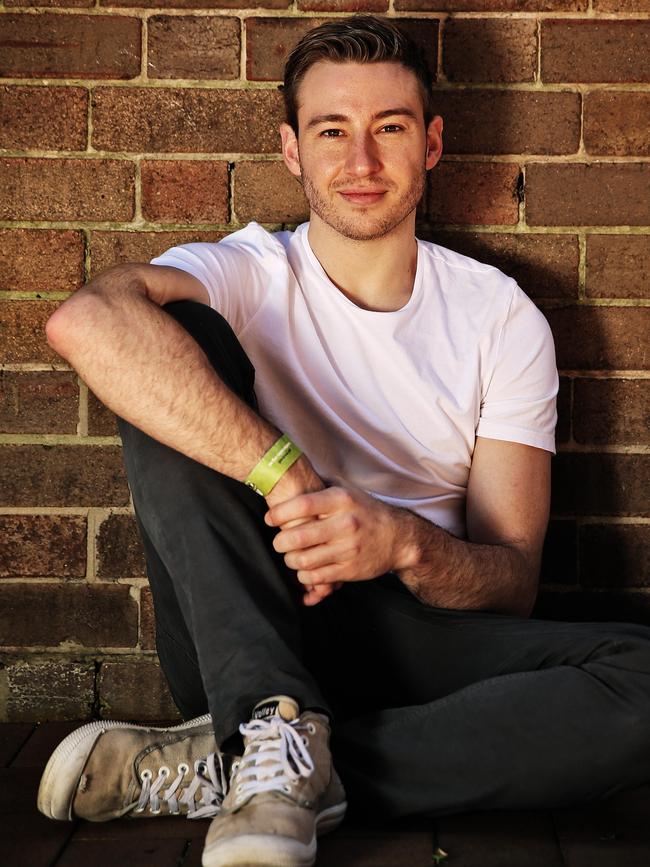
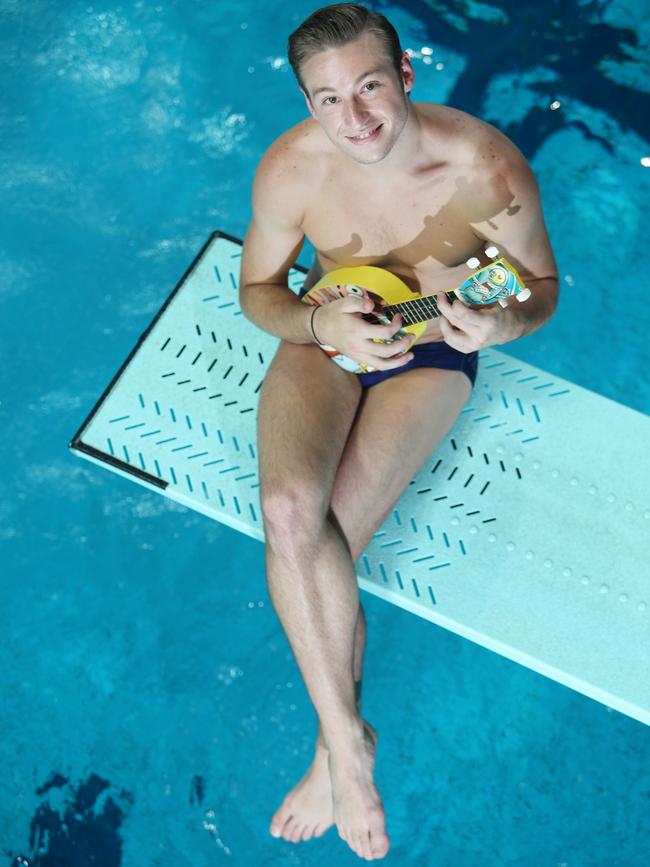
HM: This may sound like an odd question, but when you failed in your attempt with asphyxiation, were you relieved that you had failed, or disappointed?
MM: The first time I failed, I was disappointed so I tried again straight away. I felt very alone. That was shame, again, for not reaching out and doing anything about it, or sharing it with anybody. Shame is so unhelpful. Shame about depression, shame about my feelings, shame about who I am, feeling bad about feeling bad. That doesn’t make you feel less bad, it makes you feel worse, and it compounds the depression. You keep on burying it, adding more stuff on top, and it’s more counter-productive because it prevents you from actually reaching out, getting help and talking about it with anybody. That’s why shame is toxic and needs to be cut out.
HM: Help those reading get a feel for how you’ve been able to stop feeling bad about feeling bad.
MM: I tried to normalise it. I’ve found going through bouts of depression is so normal. The thing that I was ashamed about was that I felt like my depression was unjustified. Depression can come from a trauma, such as a loved one dying, or other life circumstances, but that’s not the only source of depression. Depression can also just happen. Chemical imbalances in your brain, or because of faulty thinking patterns that you’ve never challenged before. It’s so extremely common, and just because there is no justifiable reason for depression, that doesn’t mean it doesn’t exist, it doesn’t mean it’s not as severe. It still exists, and it still needs treatment.
HM: The critical piece there also, Matt, is not that it doesn’t exist, but that you shouldn’t be ashamed of it. The fact that there wasn’t a catalyst for the depression. Depression just happens. That’s how it is.
MM: Yep. Exactly. You don’t need to have a reason, you don’t need to figure out what the reason is, and you certainly don’t need to do it on your own. You can’t do it on your own. You don’t know what you don’t know, and unless you’re a trained psychologist, clinical psychologist, psychotherapist, doctor, somebody who understands the brain and depression and has studied this, then you don’t have all the answers. There are people who know more than you.
HM: And who can help?
MM: Yes! These are the people that can help you, that you should reach out to. They’re extremely non-judgemental. Fear of judgment is something that stops people from reaching out. That was the catalyst for change for me, was actually reaching out, and getting help. I didn’t know lots of stuff. I didn’t know how to challenge my own thoughts and feelings. I didn’t know how to build my own self-esteem. I didn’t know that my esteem was based entirely on external sources. What other people thought about me, my achievements, and what that made other people think of me. I didn’t know how to esteem myself. All my esteem was based on other people, and what other people thought of me. I could only judge my worth on the feedback of others. It’s not a surprise that I made a career out of diving, where I get feedback about myself in the form of numbers. If I got an 8, I was good, a 9 I was great, a 10, they thought I was perfect! That’s why I was always striving for perfection.
HM: That search for validation …
MM: It is an empty pursuit! The goalposts always move. That last dive I did in the Olympics – it’s still the highest scoring dive in Olympic history, and I still look at that and go, “eh”. If you are a perfectionist, you will always strive for it, but will never achieve it. You never really feel the exhilaration of achievement, because you could achieve the best thing in the world, but you’d always feel like you could have done it better.
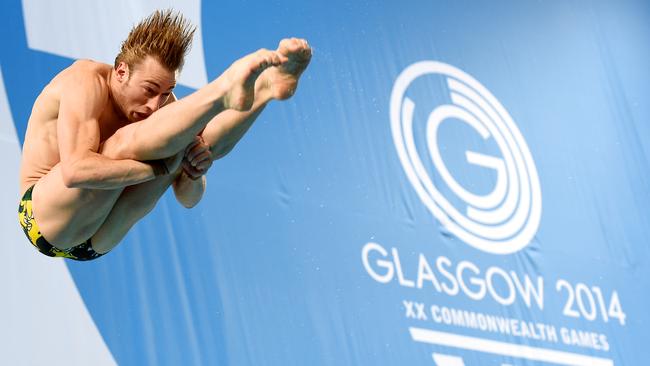
HM: You achieved the highest individual dive in the history of the Olympics, won Gold, and then realised you weren’t number one in the world and went into a spiral.
MM: Yep. That one dive could have been perfect, and I wouldn’t have been able to fault my prep, but that was only one dive. I don’t have the highest overall Olympic score ever. I don’t have this. I don’t have that. If you are a perfectionist, or if you do have low self-esteem, you only ever compare yourself to people who have more than you – not people who have less.
HM: It can’t work. This is the thing. Someone will always have more than you. Whatever it is. If you are the seeker, you will never, ever be happy. You will be constantly searching.
MM: Agreed. I’ve learnt to bring it back to myself and be grateful for what I do have. Gratitude lists are a great exercise that I used to use a lot. Sometimes they come back whenever I’m struggling, or when I am getting too focused on what I don’t have in my life. The more grateful I am for what I do have, the less time I’m spending obsessing about what I don’t have.
HM: How does Luke make life easier – your husband?
MM: He’s a very organised person. He encourages me, sometimes kicking and screaming through my fears.
HM: Which are?
MM: Everything, really. What other people feel about me, think about me, new experiences like moving to England. I could spend the next hour talking about all of these fears that really are either not valid, or not that important. If I indulge myself in those fears, then I can talk myself out of anything. I am on medication, but that’s not a magic bullet.
HM: It assists, but it doesn’t cure?
MM: It levels the playing field a bit chemically so you can actually do the work, the actual cognitive work, to implement any sort of anxiety coping strategies, or to reframe things. Some people can do very well with just the CBT work, but I know I’m just wired in a way that I’m a little bit different. I have to have a multi-pronged approach to manage some of my eccentricities.
HM: I’ve got a great mate that has a wonderful wife, three terrific kids, and a great business. He has suffered depression for a long time. I will try and get hold of him for six weeks at a time, and he will not pick up the phone. One day he will, and he’ll say, “Sorry, mate. Black Dog got me”. I said, “Why don’t you pick up the phone? You know I’ll come around and we’ll talk about it”. He says “What it does to you, is so hard to articulate, but speaking to you in the last six weeks, or anyone else in the world, was the last thing I wanted to do”.
MM: If it was fully understood, maybe it wouldn’t exist. We have a good understanding of it, and why it exists, or at least why anxiety exists. It’s because of fight or flight responses, the reptilian brain. It runs on instinct, the older part of our brain.
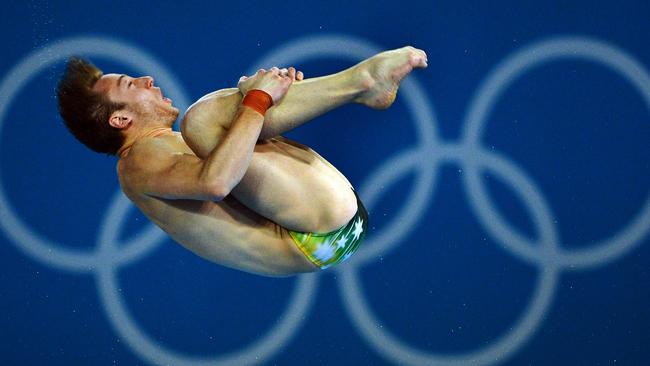
HM: We all have low days. I’ve never needed medication for depression, but I think we are all acutely aware of trying to manage our worst moments. You just do it at a more extreme level and need to get better at it because the downside is so much greater.
MM: I know that I used to feel like both the highs and the lows were very extreme. I chased the extreme highs for a long time, just to try and balance out the extreme lows. In the last ten years, I found the idea of not having extremes in emotions very appealing, and very attractive. You can’t have the high without the low. Some people naturally have a much higher emotional baseline, but I know for myself that my extreme highs cannot exist without extreme lows as well. It’s a management for me, normalising it. Not shaming myself. Learning to self soothe so that I don’t go into extreme overarousal as well.
HM: When you quit the diving, had you fallen out of love with the sport, or fallen out of love with the world full stop?
MM: Both. I didn’t enjoy diving as a teenager.
HM: But did it because you were good at it?
MM: I saw it as my ticket to be special.
HM: And everyone wants to feel special.
MM: Exactly. Again, it’s that external validation thing. This is my one chance to be special, so I hung onto it with both hands. At one stage I felt like it was actually the cause of all of my unhappiness, and that diving was this blackness that permeated the rest of my life. Which it wasn’t. That describes my attitude towards diving for a lot of my teenage years. By the time I got to 18 I was like, “Actually, I don’t care anymore. This need to be special is not worth going through the bullshit of dealing with idiots, committing myself to doing six hours of training a day, six days a week for something that I don’t like”.
HM: And then you gave it up, but came back because you realised what?
MM: It took me six months to stop hating the sport, and another couple of months to start missing it a little bit. I got a message from Chava (Sobrino), who was in Sydney – “If you ever want to start diving again, I’ll coach you”.
HM: Were you contemplating it, or was it a message out of the blue?
MM: I never thought about it until that message. Different city, different environment, fresh start, and the Olympics would be really good …
HM: ... and this is just 15 months out from Beijing?
MM: Yep.
HM: And you were diving at that point at the Sydney Royal Easter Show?
MM: I hadn’t done any diving before going to Sydney. The only reason I did the Sydney Royal Easter Show was to earn a bit of money for when I got there. I trained in secret for a little while, with Chava, until some rules got changed where national representatives didn’t have to train in the national program in Brisbane.
HM: Did you actually ever think, “I’m a chance to medal in Beijing”?
MM: My progress over that fifteen months was just going up, and up, and up.
HM: Like never before?
MM: Yes, because I was happy in the training environment, and because I felt accepted and comfortable, which I’d never experienced before. That year off, I had become really comfortable with myself and my identity, and my sexuality. I made the promise to myself in that year that I was always going to be upfront and honest with everyone from that point forwards. I felt a bit stuck in my old Brisbane program, because I started diving at the AIS at 11. It was way too young to be comfortable, to be living my fabulous, gay self! I’d been training with these people 6 hours a day, six days a week for a couple of years by the time I was comfortable enough to be coming out to people, I felt stuck. So I couldn’t.
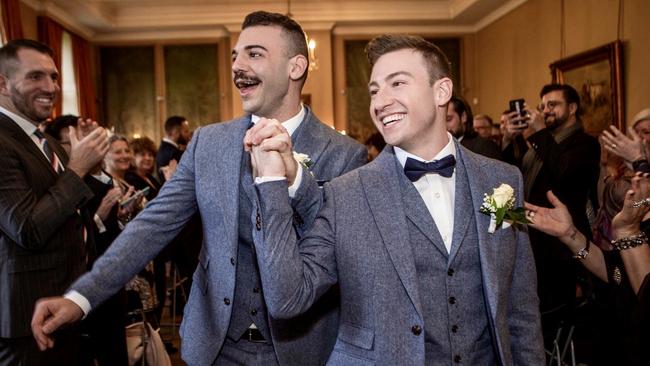
HM: Because you felt like you’d been lying to them for years?
MM: Exactly. It consequently made me feel very alienated in a training environment. Being closed off from people, it put obstacles in the way of your relating to somebody. People know that there are obstacles in the way of your relationships and getting to know you, but they don’t know how to navigate them, because they don’t know exactly what the roadblocks are, and what the obstacles are. Even if they do know what the issue is, they don’t know exactly which aspects of the issue they can address, or they can’t address.
HM: I’ve heard you describe it as a ‘slip’ in an interview, where you revealed you were gay in the lead-up to Beijing. It must have been the greatest slip of your life. You were out to your friends, but now you’re out to the world.
MM: I had the option to rescind that from the interview, but I didn’t. Initially, while it was a slip, it also became a conscious choice to go through with it. Again, because of this choice that I’d made, where I wanted to be upfront and honest with everyone. I decided to go through with the coming out. Even if I wasn’t going to have any supporters at Beijing because I’d come out, I didn’t care. That was the healthiest my self-esteem has ever been. I didn’t lose supporters, and I gained this enormous community from all around the world. I feel like that was the best decision I’ve ever made in my entire life.
HM: You could dive in front of the world as the real Matthew Mitcham for the first time.
MM: Yep.
HM: And if anyone changed their opinion about you, do you really need them in your life anyway?
MM: Nope. I don’t. F*** them.
HM: Thank you. I’ve always admired you so much. It’s been incredible to listen to you talk.
MM: Thanks, Hame.


